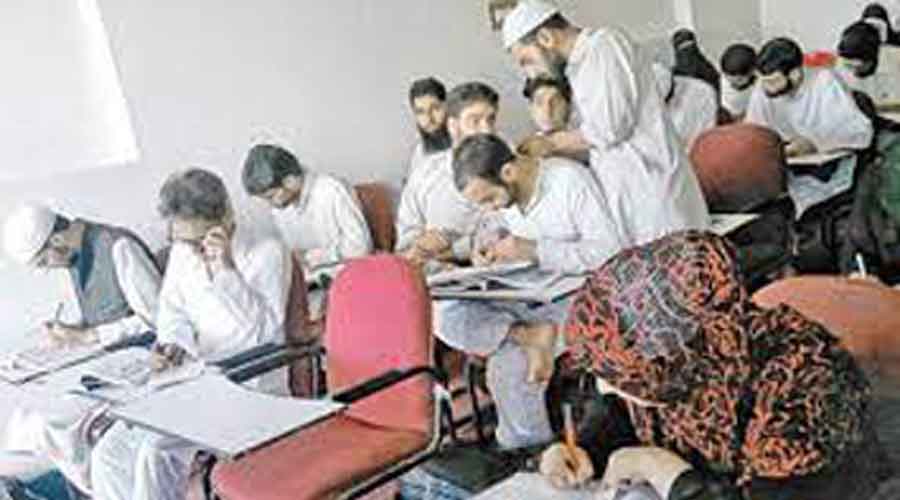Calicut University has denied creating a new reservation category for Muslim students from Lakshadweep, blaming the controversy on a mistake by the backend team that handles its web portal.
The university in Kerala is a favourite among students from the archipelago, and already offers them reservation based on their domicile and not religion.
Recently, its website showed “ST-Muslim” as a reservation category for postgraduate studies, prompting some to infer that the university had introduced a new quota for the islanders.
The university’s admission director, Binoj Sebastian, on Monday told The Telegraph this was a mistaken label for the domicile-based Lakshadweep quota and had now been corrected.
The university sets aside two undergraduate seats in each department and one seat each in every postgraduate department on its campus and at all its affiliated colleges for students from Lakshadweep.
Although the people of Lakshadweep are classified as Scheduled Tribe, Calicut University provides them with a separate quota over and above the Other Backward Classes, Scheduled Castes, Scheduled Tribes and other quotas.
University syndicate member P. Rasheed Ahammed told this newspaper he had called the vice-chancellor’s office after the “ST-Muslim” tag was spotted on the web portal and was told that varsity officials were looking into the matter.
“There’s a lurking danger in such a classification, whatever may be the excuse. The reservation for students from Lakshadweep is not based on their religion. I know people (from Lakshadweep) who don’t follow any religion or are Hindus or Buddhists,” Ahammed, assistant professor of Arabic at a private college in Malappuram, said.
“Such a classification could give rise to friction between communities since ‘ST-Muslim’ could be misconstrued as Muslims grabbing seats meant for other communities.”
Sebastian said: “It was only a random name used by the website developer…. Perhaps this confusion wouldn’t have happened had it been some other title like ‘LD’ (Lakshadweep). We have changed that nomenclature.”
He added that Muslims from Kerala have eight per cent reservation in the state’s universities and the seats reserved for students from Lakshadweep do not fall under that category.
“Let me assure everyone that all the reserved seats would go only to the specific categories,” Sebastian said.
Another syndicate member, who declined to be named, linked the controversy to recent developments such as the Lakshadweep administration’s sundering of all ties with Calicut University.
The Lakshadweep administration had in August scrapped the BA and MA Arabic courses run by Calicut University on the archipelago. This month, it shifted all the other courses the university taught in Lakshadweep to Pondicherry University.
This was seen as part of the “saffron agenda” that Lakshadweep administrator Praful Khoda Patel is accused by some of imposing on the Muslim-majority islands since taking charge last December.
“Of course, it’s the decision of the Union Territory. But since we have close linguistic and cultural ties with the islanders, anything about them immediately grabs attention in Kerala,” the syndicate member said.
Among the controversial decisions Patel has taken without consulting the local elected representatives are a beef ban in school midday meals and draft laws proposing a cow slaughter ban, a two-child norm for contesting local council polls, and stringent anti-gangster measures in a place with a low crime rate.











